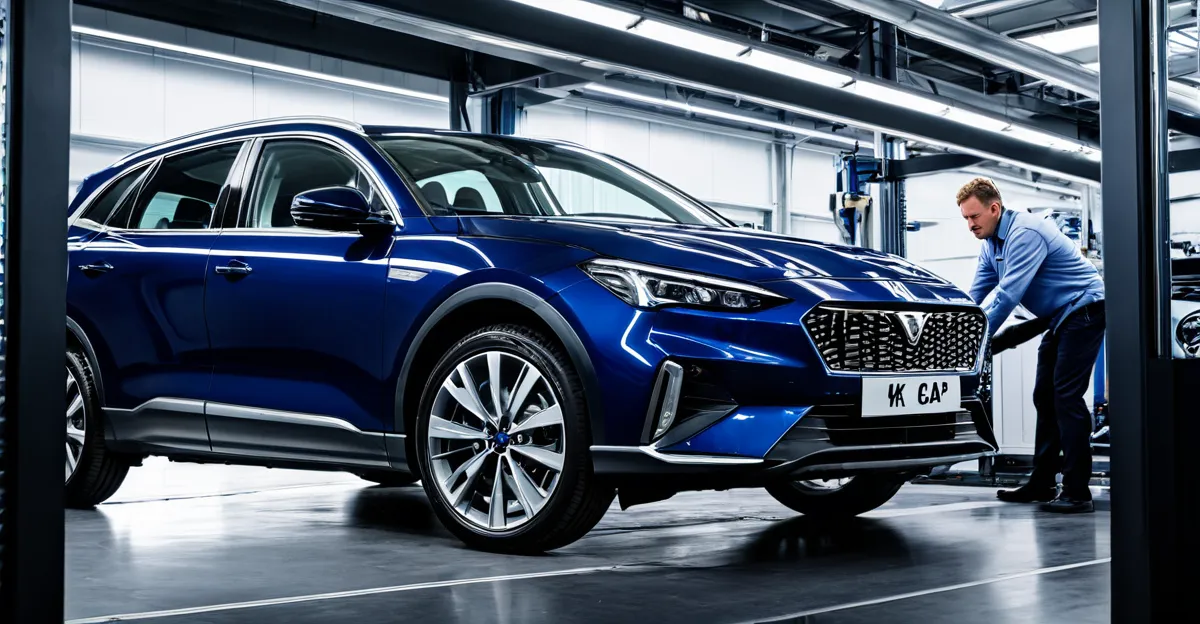Strategies Implemented by UK Car Manufacturers to Address the Skills Gap
UK car manufacturers face significant challenges due to the persistent skills shortage impacting the automotive workforce development. This skills gap stems from rapid technological advances, particularly in electric vehicle production and digital manufacturing processes, which create a demand for expertise that traditional training programs do not fully cover. The industry’s strategies have therefore evolved to tackle these critical shortages head-on.
One key approach is the implementation of targeted internal training programs focused on upskilling existing employees. These initiatives aim to enhance technical competencies such as battery technology, software integration, and advanced manufacturing techniques. By investing in workforce development internally, manufacturers can quickly adapt to evolving competencies needed for next-generation vehicle production.
Have you seen this : How is Brexit affecting the supply chain in the UK automotive sector?
Data reflects the urgency of these efforts. Recent industry reports show that over 60% of UK automotive manufacturers identify skills shortages as a barrier to growth. To counter this, companies have introduced innovative methods such as simulation-based learning and modular courses tailored specifically to automotive needs. These strategies not only address immediate gaps but also foster long-term talent retention.
Overall, UK car manufacturers are prioritizing skills shortage initiatives that blend internal upskilling with broader workforce development solutions. They continue refining these strategies to maintain competitiveness in a technology-driven market while ensuring that their teams remain equipped with the necessary expertise.
Have you seen this : How is the UK automotive industry preparing for a shift to electric mobility?
Employer-Led Apprenticeships and Training Schemes
Apprenticeships have become a cornerstone of automotive skills development programs in the UK, spearheaded by leading car manufacturers aiming to close the workforce training gap. These automotive apprenticeships UK are designed not only to attract young talent but also to provide hands-on experience aligned precisely with industry needs. For example, companies offer multi-year training schemes combining classroom education with practical factory exposure, ensuring apprentices develop both theoretical knowledge and real-world skills.
Data from recent workforce training initiatives highlights significant successes: many apprentices progress to permanent roles within their sponsoring firms, demonstrating the effectiveness of employer-led programs in mitigating the skills gap. Moreover, these schemes are evolving to include emerging areas such as electric vehicle technologies and digital manufacturing processes. By integrating specialized modules on battery assembly, software diagnostics, and green manufacturing, apprentices gain expertise relevant to the fast-changing UK automotive landscape.
The rise of digital and sustainable technologies has led to a growing emphasis on automotive apprenticeships UK that focus on green skills training. This shift reflects broader industry trends and the urgent need to future-proof the workforce. Manufacturers are investing heavily in these targeted programs to ensure employees remain adept at handling next-generation automotive systems, addressing the skills shortage comprehensively. These initiatives serve as practical and scalable solutions to the challenges confronting the UK car industry’s labor pool.
Partnerships with Educational Institutions and Government Bodies
UK car manufacturers recognize that closing the skills gap requires robust automotive industry educational partnerships. Collaborations with universities, technical colleges, and schools form a critical pillar of workforce development. These partnerships are designed to integrate cutting-edge automotive curriculum with practical industry needs, ensuring students gain relevant STEM education aligned to real-world applications in manufacturing and engineering.
Government bodies also play a pivotal role through funding and policy frameworks that support joint initiatives. Programs led by industry skill councils work to align training standards with emerging technologies, such as electric vehicle systems and digital automation. This coordinated government-industry collaboration UK facilitates access to resources, apprenticeships, and specialized courses that enhance training capacity beyond individual manufacturers.
Stakeholders including educators, manufacturers, and policy makers agree that bridging the education-to-employment gap hinges on early engagement. By offering internships, work placements, and mentorship linked to academic institutions, manufacturers expose future talent to the demands and opportunities within automotive workforce development. This holistic approach not only addresses immediate skills shortage initiatives but also builds a sustainable pipeline for long-term industry growth.



